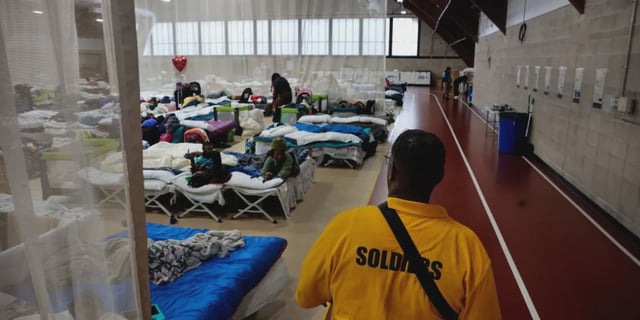Overview
- The former Bay State Correctional Center will house around 140 migrant families.
- The facility will offer amenities such as showers, a cafeteria, and a gymnasium.
- Residents will have access to English classes, job training, and housing workshops.
- Local officials express concerns over the impact on infrastructure and schools.
- The shelter is expected to be operational by June and will serve families for 6 to 12 months.


